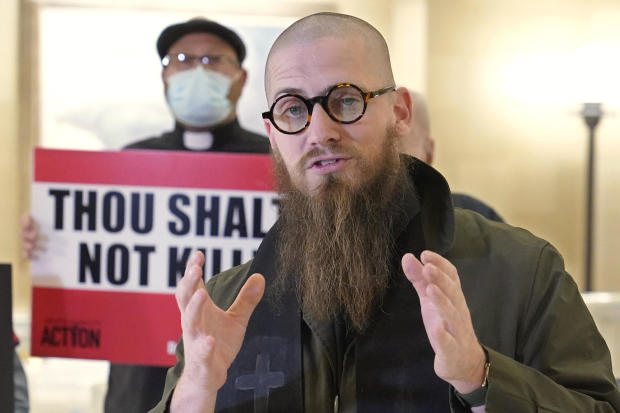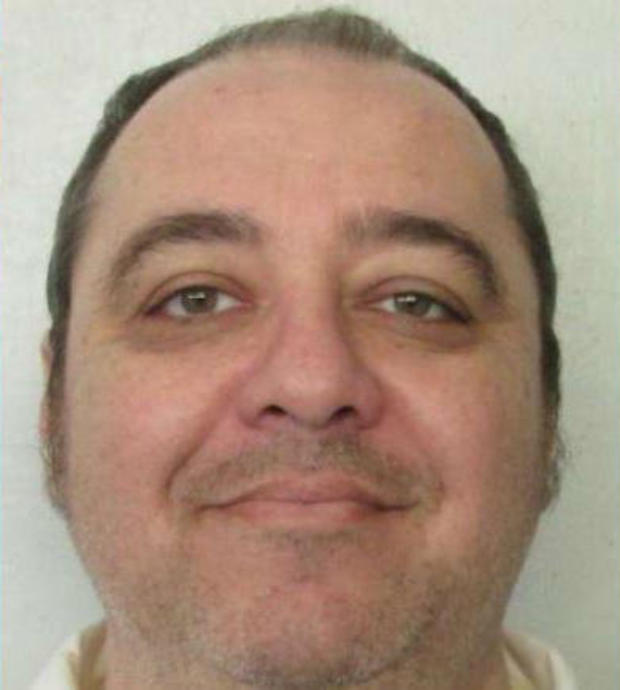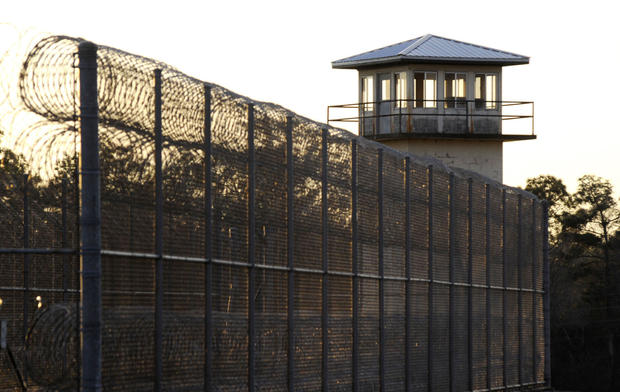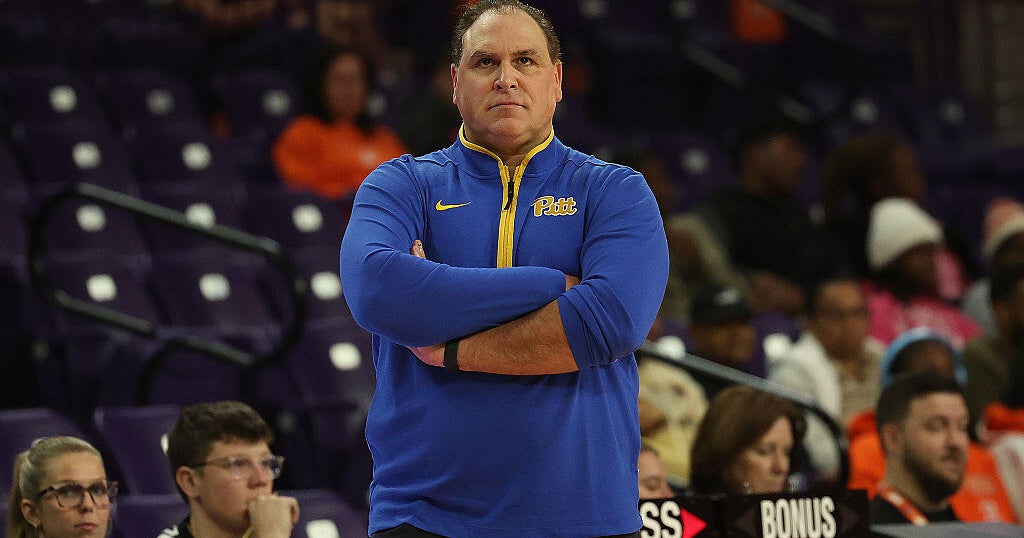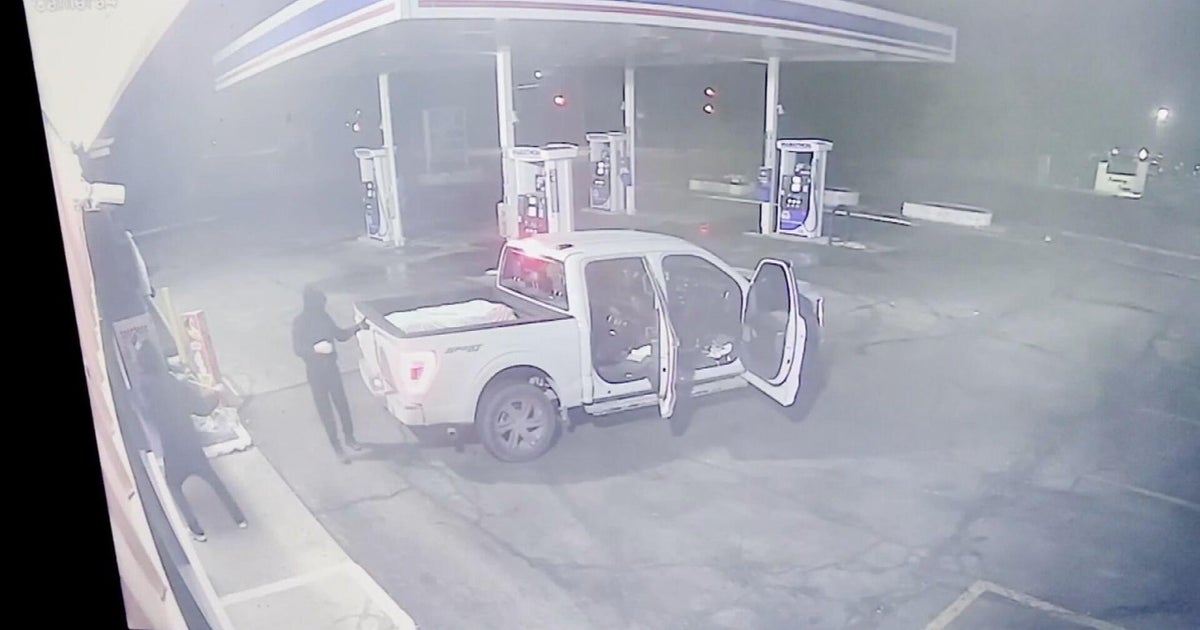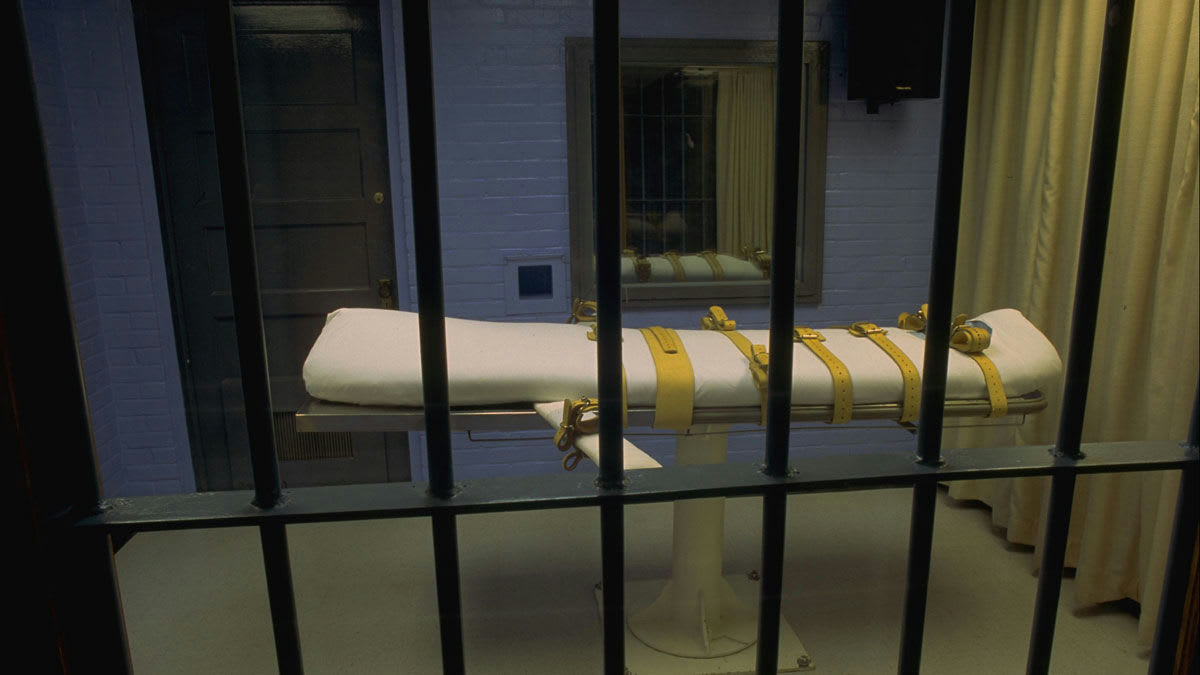Lawsuit challenges Alabama's plan to execute a death row inmate with nitrogen gas
Alabama is preparing to employ a new method of execution using nitrogen gas following botched attempts at lethal injections last year. But a spiritual adviser to death row inmates told CBS News he filed a lawsuit last week challenging the method that even veterinarians have refused to use, citing its "distressing" effects and potential lethal hazards to others who are present.
Rev. Dr. Jeffrey Hood's lawsuit claims that an execution using a mask to give a prisoner pure nitrogen gas to breathe, causing them to suffocate, could place his life at risk and prevents him from properly administering spiritual support to condemned inmate Kenneth Eugene Smith.
Hood, a vocal opponent of the death penalty who works with the group Death Penalty Action, claims in his lawsuit that the state's use of nitrogen hypoxia as an execution method "presents potentially significant dangers to his own life, and violates the religious liberties of both himself and Mr. Smith."
Changes in how states conduct executions have been emerging in recent years as medical equipment and drug manufacturers have refused to sell their products to state executioners, making lethal injection drugs harder to find. Some state legislators have sought to bring back firing squads in the event they are unable to find the necessary materials.
Three states, Alabama, Mississippi and Oklahoma, are turning to nitrogen hypoxia as a legal alternative. If used as scheduled for Smith's execution on Jan. 25, 2024, Alabama will become the first ever to carry out an execution with the method.
Nitrogen hypoxia utilizes a mask to feed a prisoner gas that is pure nitrogen. Alabama authorities claim the prisoner will have the ability to breathe normally and, according to experts, will then pass out from the lack of oxygen, dying shortly thereafter. But critics of the method are concerned about the uncertainty of the entire process and the potential dangers and obstacles that it could present to inmates, the execution team, spiritual advisers and witnesses.
Alabama's ability to carry out effective executions has been called into question in the past several years. Since 2018, the state has botched four executions which have left some inmates alive and forced them to go through the entire process again at a later date.
One of those inmates is Kenneth Eugene Smith. Sentenced to death in 1996 for a murder-for-hire killing of a pastor's wife, Smith's first execution attempt failed in November 2022. In a court filing by Smith's lawyers days later, Smith claimed that he felt sharp and intense pain throughout the attempted lethal injection process, "as though he were being 'stabbed' in the chest" as prison staff trying to insert the central line IV jabbed him repeatedly.
Now, one year later, Smith is once again facing the death chamber. Smith and his lawyers requested that the state not attempt to execute him the second time using lethal injection.
In heavily redacted documents, the state lays out a plan for the use of nitrogen gas in an execution. It includes protocol for ensuring that safety measures within the execution room area are in place, like oxygen-deficient sensors, and testing them prior to the execution.
But it also lays out the potential dangers, "in the highly unlikely event that the hose supplying breathing gas to the mask were to detach, an area of free-flowing nitrogen gas could result, creating a small area of risk (approximately two (2) feet) from the outflow. Additionally, overpressure could result in a small area of nitrogen gas that displaces the oxygen in the area around the condemned inmate's face and/or head."
Hood claims the potential dangers of this method would prevent him from effectively carrying out his duties as well as put his life at risk. Hood was required to sign a waiver where he acknowledged that he would agree to "remain at least three feet away" from Smith. He said he had to have conversations with his wife and kids about the potential dangers and that he felt "under duress" when signing the document.
In 2022, the Supreme Court ruled that officials must allow spiritual advisers to pray audibly and lay hands on inmates in the death chamber. Hood said that "the Supreme Court does not issue suggestions, it issues rulings," and that he believes Alabama is acting like it's above the law. According to Hood, the rules and protocol of the procedure are constantly changing; he said it has felt like a "tyranny of vagueness."
The Alabama Department of Corrections responded to allegations of unpreparedness or unprofessionalism, saying: "The Alabama Department of Corrections (ADOC) denies any allegations that staff are unprepared for, or unprofessional during, the execution process. ADOC staff is trained for, and routinely practice, all aspects of their job responsibilities. Staff carry out court-ordered executions professionally and with due respect for the process and all individuals involved."
The department would not comment on the waiver Hood signed, stating that it could not comment on "pending litigation."
Hood has served as a spiritual adviser to several death row inmates — sometimes drawing criticism for his tactics — and has been present at five executions this year alone. He was present for Casey McWhorter's execution by lethal injection in November at Alabama's Holman Correctional Facility, which is the state's primary housing facility for death row inmates and the only facility in the state allowed to carry out executions.
He explained the emotional and oftentimes physical toll the relationships and process can have on him. When the execution occurs, he said, "my soul's with them… and our souls [are] being ripped apart."
